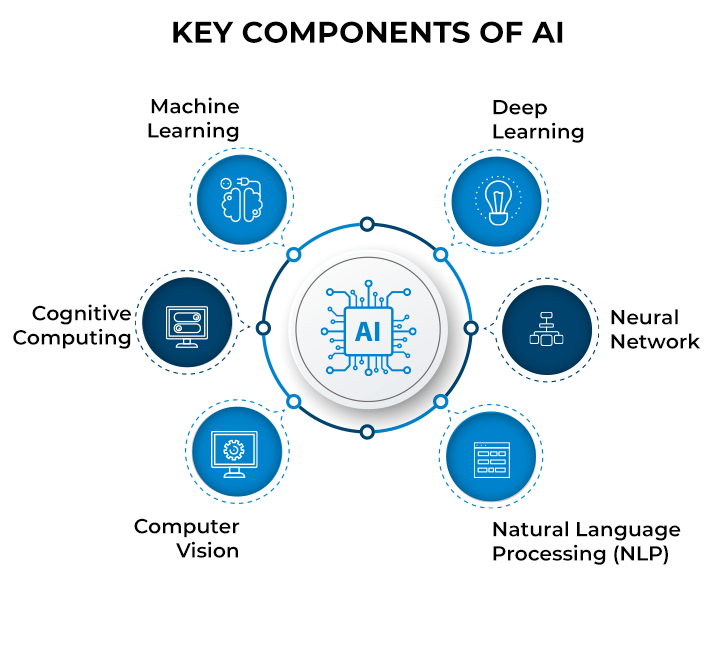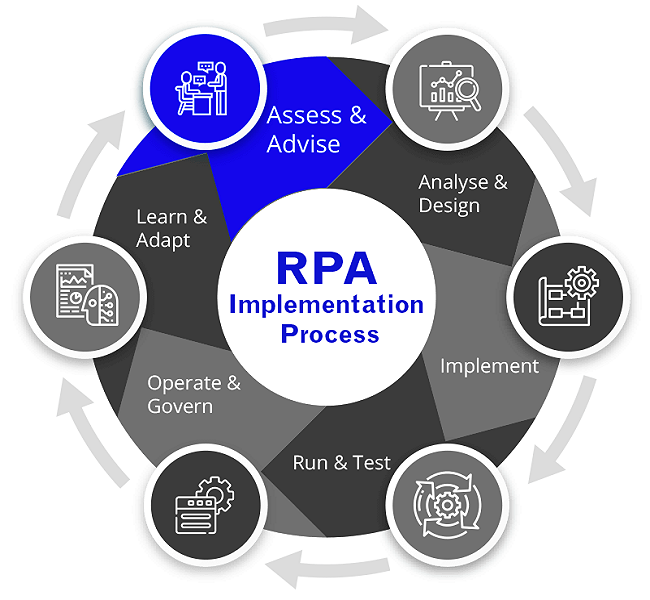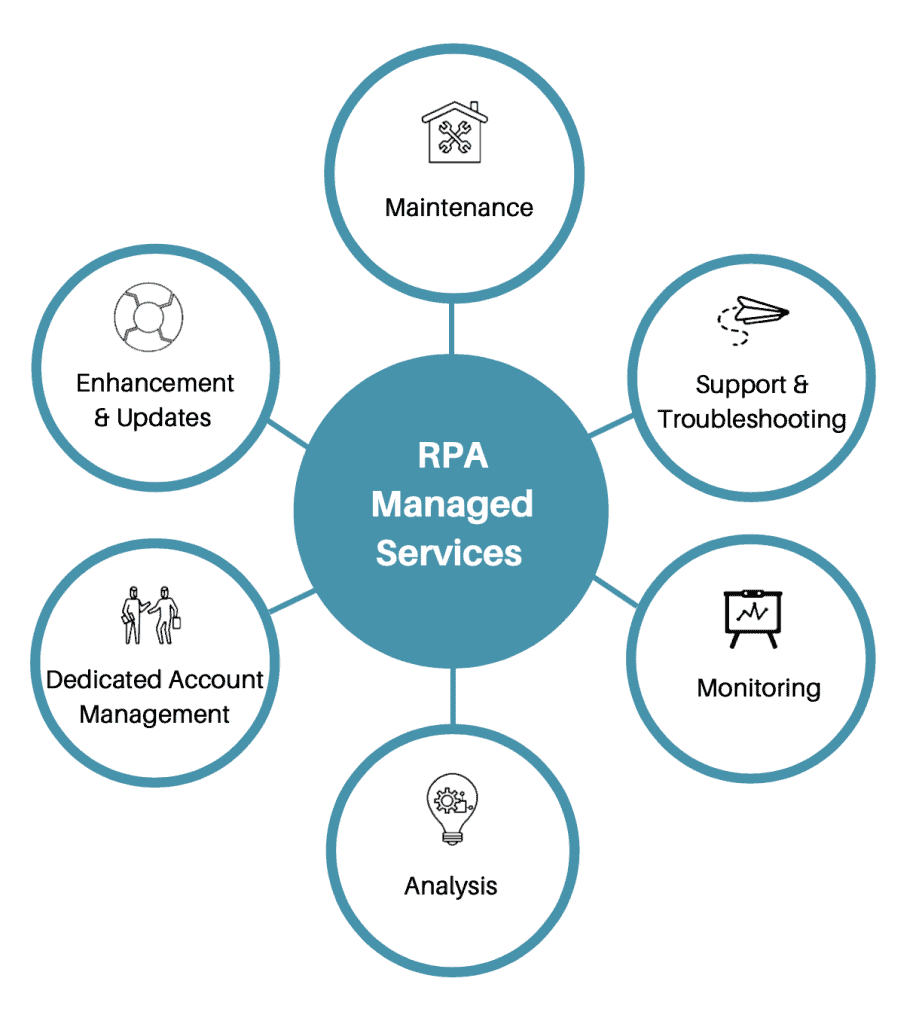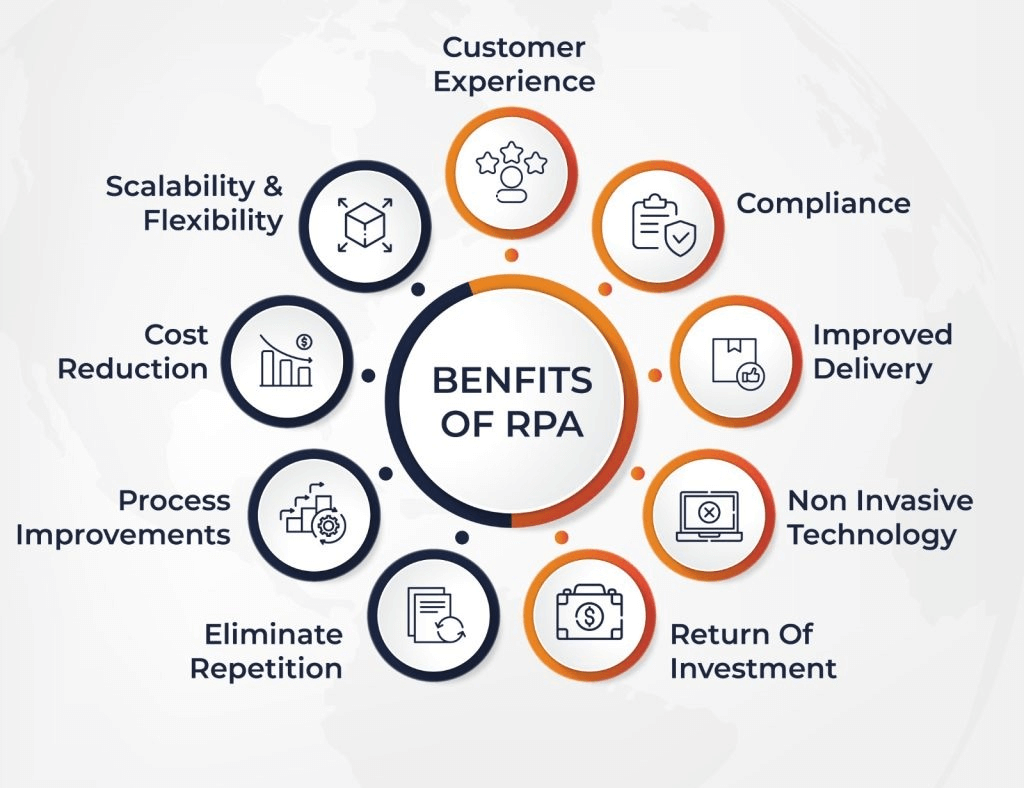AI Services(Generative AI, Prompt Engineering, RPA)
Artificial intelligence (AI) services encompass a wide range of technologies and tools that businesses can leverage to improve efficiency, automate tasks, and gain valuable insights from data. Here's a closer look at AI services

Types of AI Services Offered:
Machine Learning (ML): ML services provide tools and infrastructure for building and deploying machine learning models. These models can learn from data to make predictions, identify patterns, and automate tasks.
Computer Vision: This service allows machines to analyze and understand visual information from images and videos. Applications include facial recognition, object detection, and content moderation.
Natural Language Processing (NLP): NLP services enable machines to understand and generate human language. This is used in chatbots, virtual assistants, sentiment analysis, and machine translation.
Speech Recognition and Text-to-Speech: These services convert speech to text and vice versa, useful for applications like voice search, transcription, and automated call centers.
Predictive Analytics: AI can analyze vast amounts of data to identify trends and predict future outcomes. This is valuable for tasks like demand forecasting, risk management, and personalized recommendations.
Benefits of AI Services:
Automation and Efficiency: AI can automate repetitive tasks, freeing up human employees for more strategic work.
Data-Driven Decisions: AI can analyze vast amounts of data to identify patterns and trends that humans might miss, leading to better decision-making.
Improved Customer Experience: AI-powered chatbots and virtual assistants can provide 24/7 customer support and personalized recommendations.
Innovation and Competitive Advantage: AI can help businesses develop innovative products and services, giving them a competitive edge.


Examples of AI Service Providers:
Amazon Web Services (AWS): Offers a wide range of AI services, including machine learning, computer vision, and NLP.
Microsoft Azure: Provides similar AI services to AWS, with a focus on integration with Microsoft products.
Google Cloud Platform (GCP): Offers AI services like machine learning, natural language processing, and computer vision with strong integration with Google products like TensorFlow.
Choosing an AI Service Provider:
Identify Your Needs: First, define your specific AI needs and goals.
Consider Expertise: Choose a provider with proven expertise in the type of AI service you require.
Scalability and Security: Ensure the service can scale to meet your growing needs and provides robust security features to protect your data.
Ease of Use: Consider the user-friendliness of the platform, especially if you don't have a strong in-house data science team.

By understanding the different types of AI services available and how they can benefit your business, you can make informed decisions about leveraging AI to achieve your goals.
Robotic process automation (RPA) services encompass a range of offerings that help businesses automate repetitive, rule-based tasks using software robots. These services can be broadly categorized into two main areas:

RPA Implementation Services:
Process Discovery and Analysis: RPA consultants work with you to identify processes that are well-suited for automation. They analyze workflows, data, and systems to assess feasibility and potential benefits.
RPA Development and Deployment: The service provider builds and configures software robots to mimic human actions while interacting with digital interfaces. This may involve using RPA tools to record and automate keystrokes, mouse clicks, and data manipulation tasks.
Integration and Testing: RPA solutions are integrated with your existing IT infrastructure and applications. Rigorous testing ensures the robots function correctly and handle exceptions effectively.
RPA Managed Services:
RPA Bot Monitoring and Support: The service provider monitors the performance of your RPA bots, identifies and troubleshoots any issues, and ensures smooth operation.
Security and Governance: RPA services include implementing security measures to protect sensitive data and access controls to manage robot activity. They also establish governance frameworks to ensure responsible and compliant RPA usage.
RPA Optimization and Maintenance: The provider helps you continuously improve your RPA deployments by identifying further automation opportunities and fine-tuning existing robots for optimal performance.


Benefits of Using RPA Services:
Improved Efficiency and Productivity: PA automates manual tasks, freeing up human employees for higher-value work.
Increased Accuracy and Reduced Errors: Software robots perform tasks consistently and flawlessly, minimizing human error.
Enhanced Scalability: RPA solutions can easily scale up or down to meet changing business demands.
Cost Savings: Automating tasks can lead to significant cost reductions in labor and operational overhead.
Improved Compliance: RPA can ensure consistent and accurate execution of rule-based processes, aiding compliance efforts.
Choosing an RPA Service Provider:
Industry Expertise: Look for a provider with experience in your specific industry, as they'll understand your unique challenges and automation opportunities.
RPA Tool Expertise: Ensure the provider has expertise in the specific RPA tool you plan to use or are open to recommending the best tool for your needs.
Security and Scalability: Choose a provider with robust security practices and a proven track record of scaling RPA solutions to meet growing needs.
Communication and Transparency: Select a provider that prioritizes clear communication and keeps you informed throughout the RPA implementation process.

